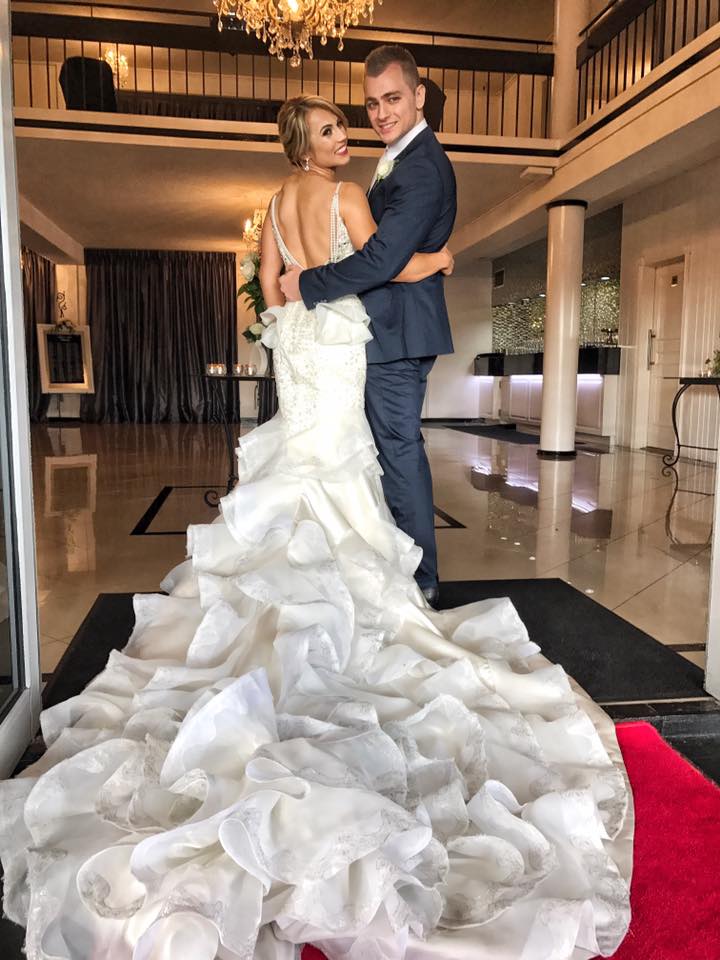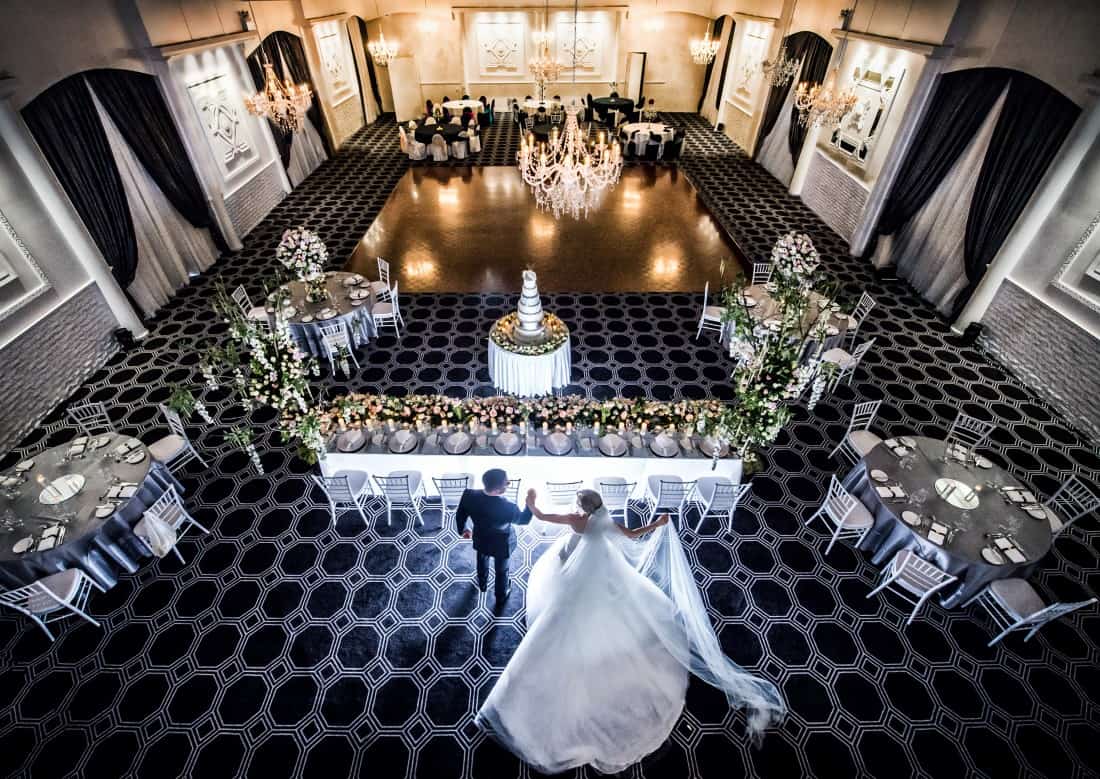When planning a wedding, choosing the right venue is a pivotal decision, and the contract for that venue is equally critical. A wedding venue contract serves as a legally binding agreement that outlines all the essential details of your event, helping to ensure that your big day runs smoothly.
This contract should cover a comprehensive range of topics to protect the couple and the venue from misunderstandings or disputes. Key elements typically include the event’s date, time, and duration and specifics regarding the use of the space, such as the areas available for the ceremony, reception, and any additional events.
Furthermore, a well-drafted wedding venue contract should address all costs involved, including the deposit, payment schedule, and any potential additional fees, such as overtime charges or costs associated with using outside vendors. It’s also essential for the contract to detail the venue’s cancellation and refund policies, as unexpected circumstances can arise.
Other important considerations include insurance requirements, liability clauses, and any restrictions the venue may impose, such as noise limits, décor guidelines, or catering restrictions. By ensuring that all these elements are clearly defined in the contract, couples can avoid surprises and focus on enjoying their special day.
Let’s Get Straight to the Point
A wedding venue contract is a crucial document that ensures your big day runs smoothly by outlining all essential details and protecting both parties from potential disputes. The wedding date, time, location, and a detailed description of the venue’s features and services are key components to include.
The contract should also cover costs, payment schedules, and potential additional fees. It’s important to clearly define refund and cancellation policies and legal terms like retainer, liquidated damages, and force majeure.
Negotiation is encouraged to ensure the contract meets your needs, and final steps before signing include double-checking details, asking for clarifications, and securing a signed copy for your records.
Basic Information Needed On Your Wedding Venue Contract
Names Of The Couple
While it might seem obvious, it’s crucial that the contract correctly lists the names of both individuals getting married. This clarifies who is responsible for the agreement and who is entitled to the services specified.
Wedding Date And Time
Ensure that the wedding date and time are accurately recorded in the contract. A mistake could lead to significant issues, such as double booking or incorrect scheduling. Also, verify your event’s start and end times, including time for setup and teardown.
Exact Location Of The Event
The contract should specify the exact location of the venue where the event will take place. Whether it’s the Grand Ballroom or the Garden Terrace, ensure the room name is clearly stated to avoid any last-minute surprises. Include details about the space, such as room size, decor, lighting, and additional facilities like dressing rooms or stages.
Detailed Description Of The Venue’s Features
Request a comprehensive list of the services and features included with the venue. This might include tables, chairs, lighting, and sound systems. Knowing exactly what you’re getting will help you avoid unexpected costs later.
Costs And Payment Schedule
Clearly outline the total cost of the venue, including any deposits, instalment payments, and the final balance. Ensure the contract specifies payment due dates to avoid late fees or penalties. It’s also wise to include any potential additional charges that could arise, such as overtime fees.
Supervisor’s Name For The Wedding Day
Identify the person in charge of the venue on the day of your marriage. If there is a dedicated point of contact for issues arising on the event day, addressing any issues will be simpler. Also, include the name of a backup person in case the primary contact is unavailable.
Refund And Cancellation Policy
Understand the venue’s refund and cancellation policies. This section should clearly state what happens if you need to cancel or reschedule your event and under what circumstances you are entitled to a refund.
Common Wedding Contract Terms
You may come across several legal terms when reviewing your wedding venue contract. Here are some common ones to be aware of:
Retainer
A retainer is a nonrefundable deposit to secure the vendor’s services for your wedding date. It’s usually a significant portion of the total cost and is often nonrefundable unless the vendor cancels.
Liquidated Damages
This term refers to a pre-agreed amount paid if one party breaches the contract. In the context of wedding contracts, it often applies to nonrefundable deposits if the client cancels the event.
Force Majeure (Act Of God)
This clause covers unexpected events like natural disasters (e.g., fires, floods) that could prevent the event from taking place. It typically releases both parties from liability if such an event occurs.
Waiver
A waiver means that if one party does not enforce a specific term of the contract at one time, it does not forfeit the right to enforce that term later.
Severability
This clause ensures that if one part of the contract is found to be unenforceable, the rest of the contract remains valid.
Indemnification
Indemnification means that one party agrees to compensate the other for any harm, liability, or loss that arises during the event. This is particularly important for large-scale events where accidents or damages could occur.
Can You Negotiate A Wedding Contract?
You can and should negotiate your wedding contract to ensure it meets your needs. A contract is a mutual agreement, and both parties should feel comfortable with its terms before signing. Feel free to ask for changes or clarifications if something needs to be corrected.
Tips For Negotiating:
- Be Specific: Clearly outline any changes you want in writing.
- Stay Polite: Approach negotiations respectfully to maintain a positive relationship with your vendor.
- Get It in Writing: Ensure any agreed-upon changes are included in the final contract.
Final Steps Before Signing The Contract
Once you’ve thoroughly reviewed the contract and are satisfied with its terms, you must take a few final steps before signing.
Double-Check All Details
Go through the contract one last time to ensure all the details, such as dates, times, names, and costs, are correct. Confirm that any requested amendments have been made and there are no ambiguities.
Ask For Clarifications
If you need help understanding the contract, please ask for clarification. It’s better to address any questions or concerns now rather than later.
Sign And Keep A Copy
Once everything is in order, both parties should sign the contract. Make sure you receive a copy of the fully executed contract for your records. This document will be your reference in case any issues arise.
Securing a comprehensive wedding venue contract is essential to guarantee the seamless execution of your wedding day and that you are protected from potential issues. You can draft a contract that addresses everything by including all the necessary details, understanding the terms, and negotiating where needed.
Review the contract carefully, consult with a legal professional if necessary, and keep a signed copy for your records. With a solid contract, you can focus on enjoying your special day without worrying about unforeseen complications.




